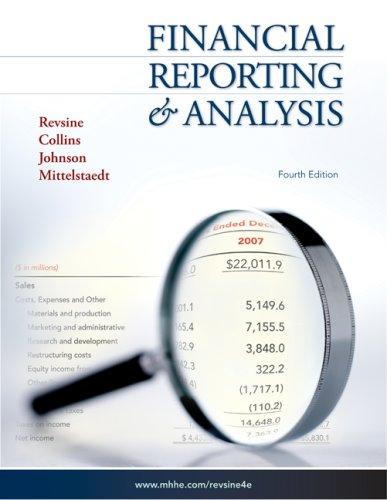Question
Pharm-Rite Company produces various medicines in capsule form. At the beginning of the month of February, they had 10,000 units that were 60% complete. These
Pharm-Rite Company produces various medicines in capsule form. At the beginning of the month of February, they had 10,000 units that were 60% complete. These were assigned costs of $90,000. During the month they completed 50,000 units and have 15,000 units that are 50% completed. They had production costs during the month of $862,500.
- Complete all 5 steps of a Production Report using the Weighted Average Method
- Completeall5stepsofaProductionReportusingtheFIFOMethod
Five Steps examples as followings:
Weighted Average Costing Guided Example
Using the example of CoffeeDunRight from before, now add that 4,000 units were 50% complete to begin the month of March. These units were assigned $20,000 in February and the company again incurred $110,000 of product costs this month.The steps below outline how to use weighted average costing to calculate the equivalent units.
Step 1: Physical Flow Analysis
First, trace the physical flow of the products. Youdo this by reconciling the units needed to be accounted for and accounting those units. For the example it would look like:
Step 2: Calculate Equivalent Units
Second, calculate the equivalent units. With this method youassume that all units were started and completed when calculating the equivalent units. This means youcan ignore the beginning inventory when calculating EUs.
Step 3: Compute Unit Cost
Third,add both the costs incurred this month, as well as the costs associated with BWIP. Then divide by the equivalent units.
Step 4: Value Inventories
Four, take the unit cost multiplied by the equivalent units in the individual inventories.
Step 5: Cost Reconciliation
Finally, reconcile the costs incurred with the costs distributed among the inventories.
Please note that the costs accounted for and to account for should be equal. The error here is rounding11.81818181 etc., to 11.82
First In First out Guided Example
Continuing with theCoffeeDunRightexample, now add that 4,000 units were 50% complete to begin the month of March. These units were assigned $20,000 in February and the company again incurred $110,000 of product costs this month.
Step 1: Physical Flow Analysis
The first step is to trace the physical flow of the products. You do this by reconciling the units needed to be accounted for and accounting those units. This step will be thesame as in the weighted average costing methodbecause you are accounting for the same number of units.For this example, it would look like:
Step 2: Calculate Equivalent Units
The second step is to calculate the equivalent units. In this method, you do not assume all costs are added in this period. This means that the original costs attributed to BWIP will remain there and you will only add the new costs this month to equivalent units With that said, you also have to adjust how much you worked on the BWIP this month. For example, if youhad 1,000 units 40% complete in BWIP the equivalent units for these units in this month would be the effort needed to complete those units (60% in this case.)
Step 3: Compute Unit Cost
Here, addjust the costs incurred this month as the costs incurred previously will remain with the BWIP. Then divide by the equivalent units.
Step 4: Value Inventories
Take the unit cost multiplied by the equivalent units in the individual inventories. Remember for the units that were in BWIP, youwill only multiply the unit cost by the equivalent units to complete and then add the costs associated to the previous period.
Step 5: Cost Reconciliation
Finally, reconcile the costs incurred with the costs distributed among the inventories.
Please note that the costs accounted for and to account for should be equal. The error here is rounding 12.22222222 etc.to 12.22.
Step by Step Solution
There are 3 Steps involved in it
Step: 1

Get Instant Access to Expert-Tailored Solutions
See step-by-step solutions with expert insights and AI powered tools for academic success
Step: 2

Step: 3

Ace Your Homework with AI
Get the answers you need in no time with our AI-driven, step-by-step assistance
Get Started


